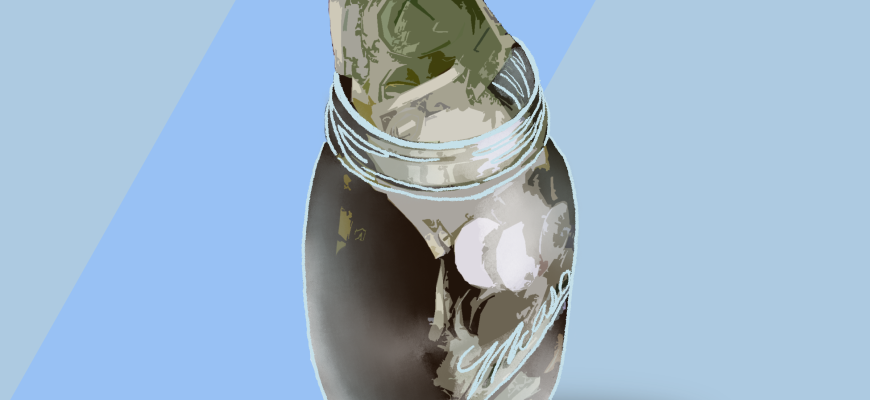After a stressful Memorial Day weekend at work, the chance to give my sore feet a rest and write this column was a much needed break. The good weather and federal holiday left our cafe busier than usual, and we were chronically falling behind on orders. Running customers their sandwiches and coffee, I noticed something interesting. I could instantly tell whether they had worked in the service industry before.
I certainly preferred the ones that had. They were patient and friendly, unoffended by the long wait for their food. They met me with a warm smile and a “thank you.” Conversely, the ones that hadn’t met me with an eye roll. This difference has been a constant at every job I’ve had, and if you’ve worked in the service industry, it’s probably been one for you. I spent my sophomore year of high school making pizzas at Little Caesars and my junior year scooping popcorn at a movie theater. The location doesn’t matter: The same giveaways can tell you a lot about a person’s work history.
Service industry workers don’t treat you poorly for things that aren’t your fault. At the theater, when our prices went up or a movie sold out, they knew not to blame the guy standing on the other side of the counter. Others, usually the wealthiest-looking customers, were happy to leave their complaints with me. I won’t soon forget being cursed at on a humid day because our salt was too clumpy to shake out.
But, there is an epiphany to be had in getting yelled at over nonsense — you are above no one. It doesn’t matter who you are outside of work. You’re all cleaning the same urine-soaked bathrooms and dealing with the same arrogant jerks. When you put on that uniform, the wrong customer sees you all as the same trash.
But we shouldn’t judge too quickly. It’s easy to be that customer if you haven’t been on the receiving end of such malice. My simple solution to this empathy problem: Everyone should work in the service industry, at least for a little while. It makes you experience the world differently.
You see that people are deeper than the hairnet and greasy shirt the boss makes them wear in a way that’s impossible to appreciate until you’ve worn them too. You realize that just because someone’s on the clock and you aren’t doesn’t make you any better. They’re all people just trying to make a living — they weren’t put on Earth solely as an object to make your life easier. I get home and write, another of my coworkers practices with her band, another works on his startup and the cashier at your grocery store has his own dreams. Once you’ve heard them, it’s hard not to be a kinder person.
Working in the service industry makes you more understanding, too. Your food is taking too long? Believe me, the workers know. They aren’t doing it to spite you. You don’t notice the online orders that came in ahead of yours or the short-staffed kitchen struggling to keep up unless you’ve been in that position yourself. Once you burn your first order, you’ll never hold it against anyone that burns yours.
That’s because empathy is a much stronger emotion than sympathy. There is a certain solidarity between service industry workers because we share many of the same struggles. We tip well because we know how bad it hurts to receive nothing. I’ve asked coworkers at all three of my jobs if they’ve started tipping more since joining the industry, and all have unanimously said yes. It has certainly been true for me.
I bring up tipping because the pandemic changed the surrounding culture and people are concerned. Different types of businesses are now asking for tips, and many customers are chafing at the idea of extra compensation for workers doing less intensive jobs. I understand the sentiment, but I disagree. For whatever my input is worth: Tip as large and as often as you can afford.
Do it everywhere. I’ll even tip in the McDonald’s drive-through if I have extra cash in my wallet. Not because I think working at McDonald’s is difficult, but because I know that many of the customers are. I remember how busy the movie theater was on the opening weekend of “Dune” and how rude people were about the wait. I was ready to quit, until a poorly-dressed gentleman gave me $2 and told me to hang in there. I still remember his face and the way he made me feel.
Don’t think of leaving these sorts of tips as compensation; instead, think of it as your daily act of kindness. Be the antidote to the a-hole who came before you, because I promise, there’s no shortage of them. Be the face that an employee will never forget. Everyone should spend some time working in the service industry, but if you never do, treat everyone as though you have.
Jack Brady is an Opinion Columnist writing about American politics and culture. He can be reached at jackrbra@umich.edu.








